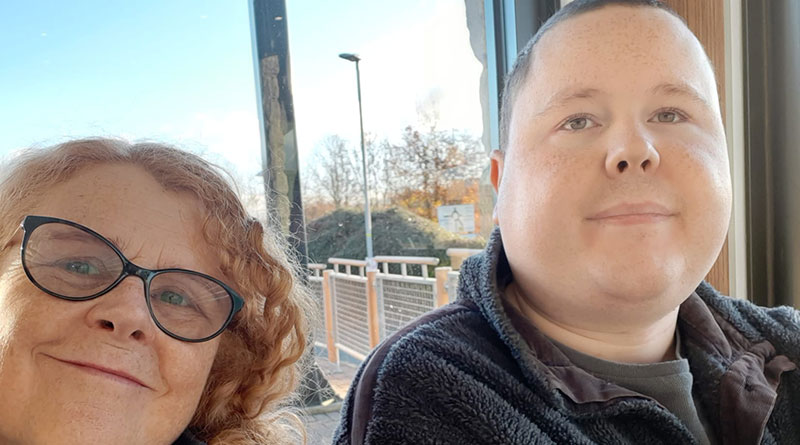
Dad’s Heartbreak Fears As Son’s Lifeline Charity Faces Closure
A father says it would be “devastating” for his severely disabled son if the care charity that has transformed his life is forced to close.
Dr Jim Hewitt, from Llandudno in North Wales, fears his son James, 35, who lives with severe autism, learning disabilities, epilepsy, mobility issues and challenging behaviour, would lose the stability and relationships that have given him happiness for the first time in his life.
James requires round-the-clock care and has the mental age of a toddler. For years, Dr Hewitt and his wife Angela struggled to find suitable support, until two years ago when charity Anheddau took over.
The former Ysgol y Gogarth headteacher, who later became an inspector of special schools, said James has thrived since moving into supported accommodation in Colwyn Bay with Anheddau’s help.
“Before, we’d been disappointed with other providers,” said Dr Hewitt. “But Anheddau’s approach was completely different – the package of care they offered fitted James perfectly.
“Their staff treat him with love and dedication, and he now sees them as family. We would be heartbroken if that was taken away.”
He added that James’s wellbeing depends on the staff he trusts. “He can’t simply be handed over to strangers. These carers are his friends, his life, the people who give him security.”
According to Anheddau, which operates across Gwynedd, Anglesey, Conwy, Denbighshire and Wrexham, the care they provide for 140 people with autism, learning disabilities, mental health conditions and complex needs, is under threat because of a severe funding crisis.
Things are so bad that the charity, which employs 400 staff, says it will be forced to look at redundancies unless local authorities come up with a financial rescue package.
Without additional money, they are facing a £400,000 shortfall in their budget which they have no way of paying.
It’s come about because of rises in the Real Living Wage and National Employers’ contributions.
Dr Hewitt, who has a PhD in developing communication skills in people with severe autism, said all local authorities and the Welsh Government should do all they can to save Anheddau.
He said: “Our local authority, Conwy, has been very good with us, I can’t really be critical of them.
“They have bent over backwards to help us look after James.
“But in general terms I would say local authorities and the Welsh Government should really appreciate organisations like Anheddau.
“The main purpose of charities like Anheddau is to look after the welfare of their clients – and they do that very well.
Anheddau chief executive Claire Higgins said the charity had been left in an “increasingly fragile position” after years of underfunding and rising costs.
She explained that despite staff working tirelessly, the sector was under “unprecedented strain” and without urgent action “charities like ours may not survive”.
Mario Kreft MBE, chair of Care Forum Wales, echoed those concerns, warning that the collapse of organisations such as Anheddau would have a “profound human cost”.
He said the charity’s situation highlighted “a system that has been underfunded for too long” and called for “immediate intervention to protect vulnerable people who rely on these services every day”.
“The Real Living Wage has gone up by five per cent and there was a 37 per cent increase in the cost of National Insurance and it amazes me that the decision makers in charge of the purse strings think the social care providers can somehow magically absorb the extra costs without additional funding.
“Sadly, this is not just a huge, existential problem for Anheddau. It is also having a major impact on the whole of the social care sector because we are all affected by exactly the same issues.
“As a result, it will undoubtedly lead to providers having to look at curtailing services and even having to close in a number of cases.
“This is an ill-thought through policy with serious unintended consequences that will cause huge problems for everyone down the line, including local council and the NHS who will have to pick up the pieces.”

